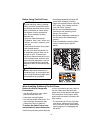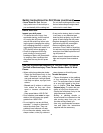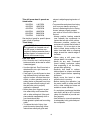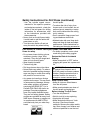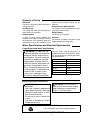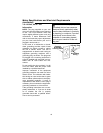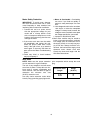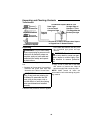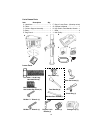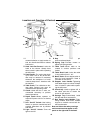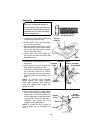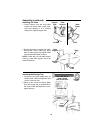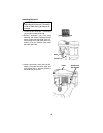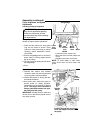
9
Motor Safety Protection
IMPORTANT: To avoid motor damage,
this motor should be blown out or vacu-
umed frequently to keep sawdust from
interfering with normal motor ventilation.
1. Connect this tool to a power source
with the appropriate voltage for your
model and a 15-amp branch circuit
with a 15-amp time delay fuse or circuit
breaker. Using the wrong size fuse can
damage the motor.
2. If the motor won't start, turn the switch
off immediately and unplug the tool.
Check the quill to make sure it turns
freely. If the quill is free, try to start the
motor again. If the motor still does not
start, refer to the "Motor Troubleshooting
Chart."
3. Fuses may "blow" or circuit breakers
may trip frequently if:
a.Motor Is Overloaded - Overloading
can occur if you feed too rapidly or
make too many start/stops in a short
time.
b. Line voltages should not be more than
10% above or below the nameplate
voltage. For heavy loads, however, the
voltage at motor terminals must equal
the voltage specified for your model.
c. Improper or dull drill bit is used.
4. Most motor troubles may be traced to
loose or incorrect connections, overload,
low voltage (such as small size wire in
the supply circuit) or to overly long sup-
ply circuit wire. Always check the con-
nections, the load and the supply circuit
whenever motor doesn't work well.
Check wire sizes and length with the
Wire Size Chart shown.
Wire Sizes
NOTE: Make sure the proper extension
cord is used and is in good condition.
The use of any extension cord will cause
some loss of power. To keep this to a min-
imum and to prevent overheating and
motor burnout, use the table at right to
determine the minimum wire size
(A.W.G.) extension cord.
Use only 3-wire extension cords which
have 3-prong grounding type plugs and 3-
pole receptacles which accept the tools
plug.
Extension Cord
Length
Gauge
(A.W.G.)
0-25
25-50
16
14





